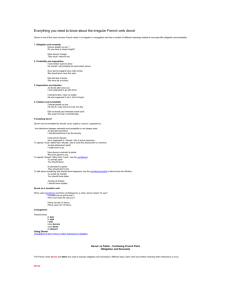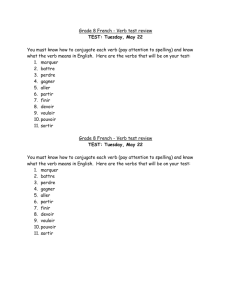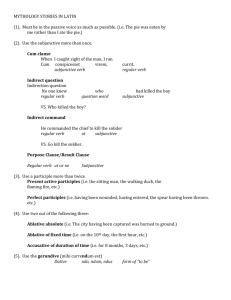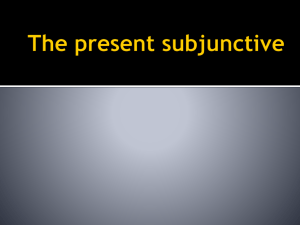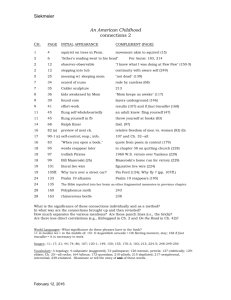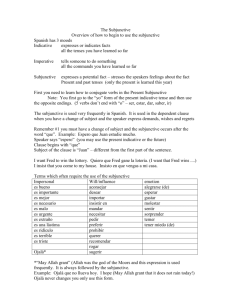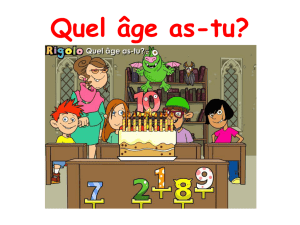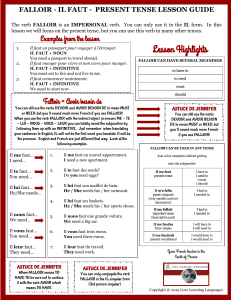Devoir vs Falloir
advertisement
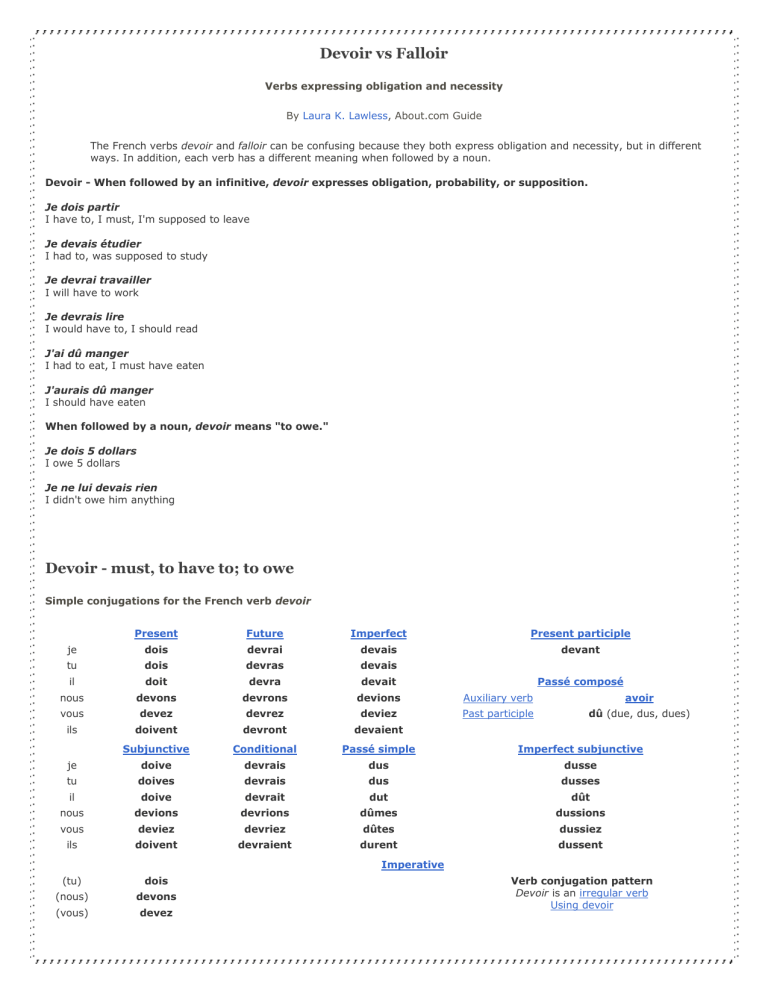
Devoir vs Falloir Verbs expressing obligation and necessity By Laura K. Lawless, About.com Guide The French verbs devoir and falloir can be confusing because they both express obligation and necessity, but in different ways. In addition, each verb has a different meaning when followed by a noun. Devoir - When followed by an infinitive, devoir expresses obligation, probability, or supposition. Je dois partir I have to, I must, I'm supposed to leave Je devais étudier I had to, was supposed to study Je devrai travailler I will have to work Je devrais lire I would have to, I should read J'ai dû manger I had to eat, I must have eaten J'aurais dû manger I should have eaten When followed by a noun, devoir means "to owe." Je dois 5 dollars I owe 5 dollars Je ne lui devais rien I didn't owe him anything Devoir - must, to have to; to owe Simple conjugations for the French verb devoir Present Future Imperfect Present participle je dois devrai devais devant tu dois devras devais il doit devra devait nous devons devrons devions Auxiliary verb Passé composé avoir vous devez devrez deviez Past participle dû (due, dus, dues) ils doivent devront devaient Subjunctive Conditional Passé simple je doive devrais dus Imperfect subjunctive dusse tu doives devrais dus dusses il doive devrait dut dût nous devions devrions dûmes dussions vous deviez devriez dûtes dussiez ils doivent devraient durent dussent (tu) dois (nous) devons (vous) devez Imperative Verb conjugation pattern Devoir is an irregular verb Using devoir Falloir is stronger and somewhat more formal than devoir; it expresses necessity. Falloir can be used with an infinitive or the subjunctive. Because it's an impersonal verb, falloir does not conjugate for different subjects, so in order to specify the person who needs to do something, you can either use the subjunctive or an indirect object pronoun with the infinitive. Il faut travailler. It is necessary to work, One needs to work. Il me faut travailler, Il faut que je travaille. I need to work. Il ne faut pas manger. One must not eat. Il nous fallait manger. We had to eat. Il ne nous faut pas manger, Il ne faut pas que nous mangions. We don't need to eat, We mustn't eat When used with a noun, falloir means "to need." Qu'est-ce qu'il te faut ? What do you need? Il me faut un stylo. I need a pen. Falloir - to be necessary Simple conjugations for the French verb falloir il Present Future Imperfect faut que faudra que fallait que Present participle n/a Passé composé il Auxiliary verb avoir Past participle a fallu que Subjunctive Conditional Passé simple Imperfect subjunctive faille que faudrait que fallut que fallût que Imperative n/a Falloir is impersonal and irregular, and is one of the most common French verbs Using falloir Expressions with falloir Quiz on falloir Summary Devoir Falloir Type of verb personal impersonal Register normal formal/normal Meaning when followed by... infinitive must, to have to to be necessary/need to subjunctive --- to be necessary/need to noun to owe to need
